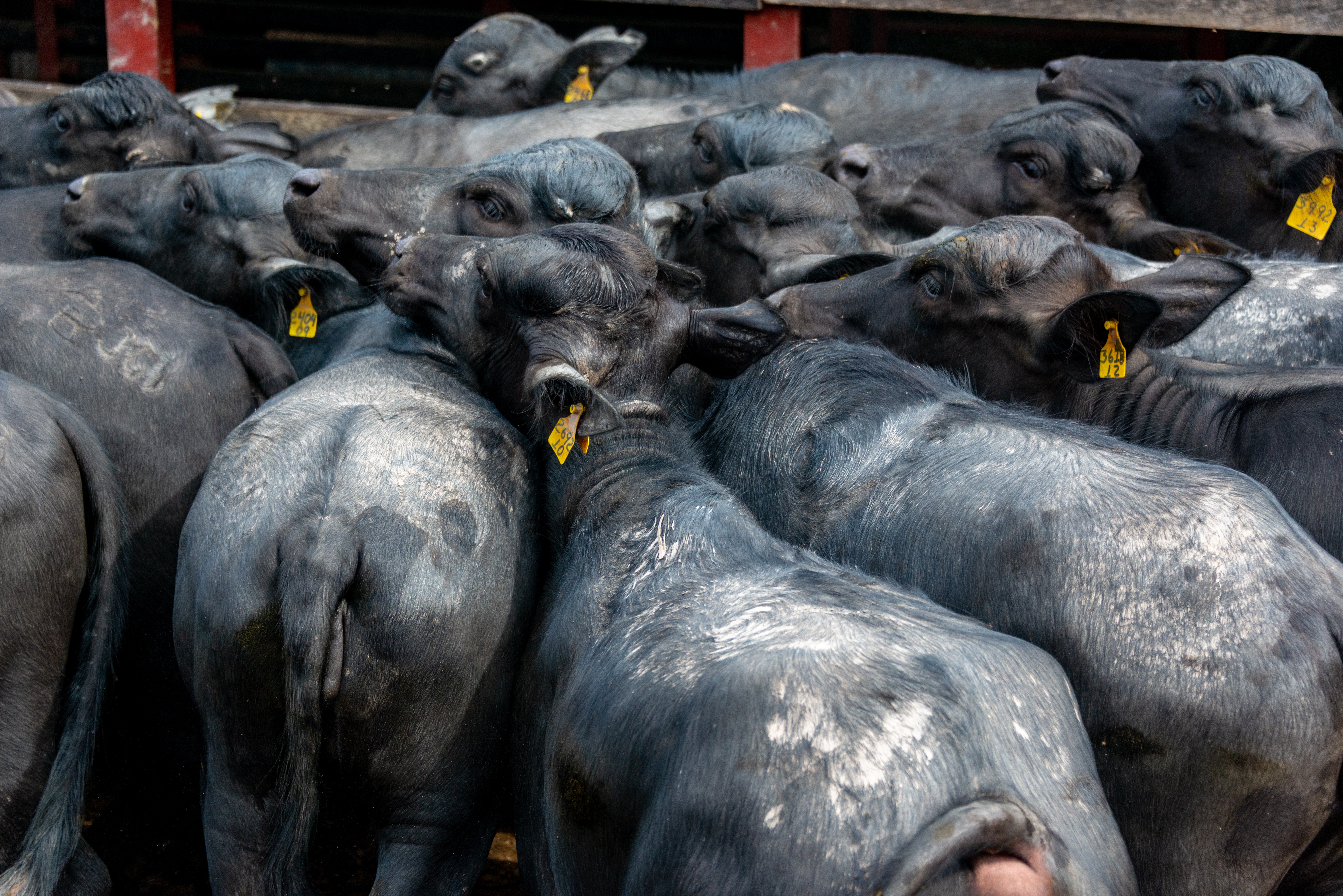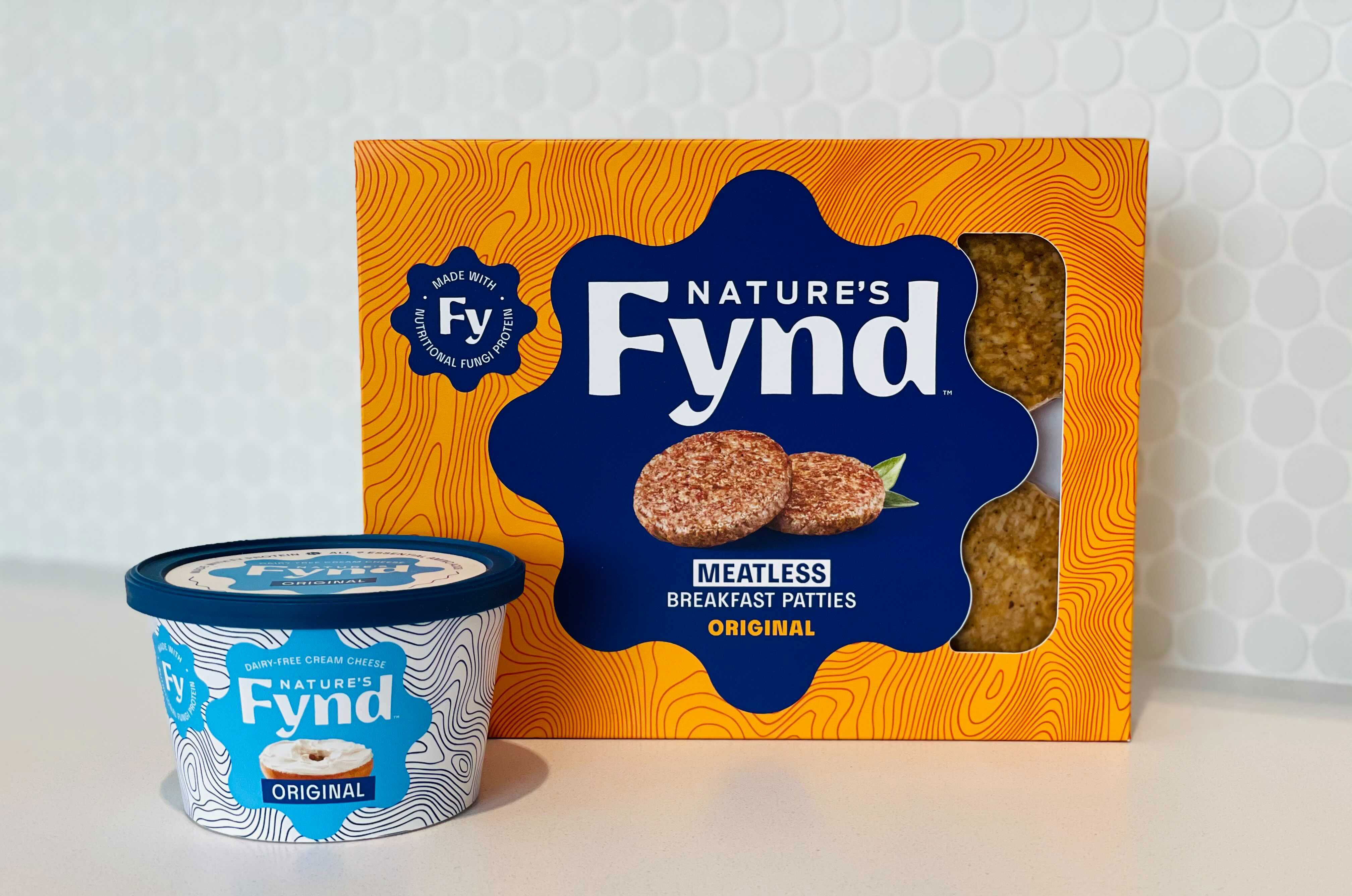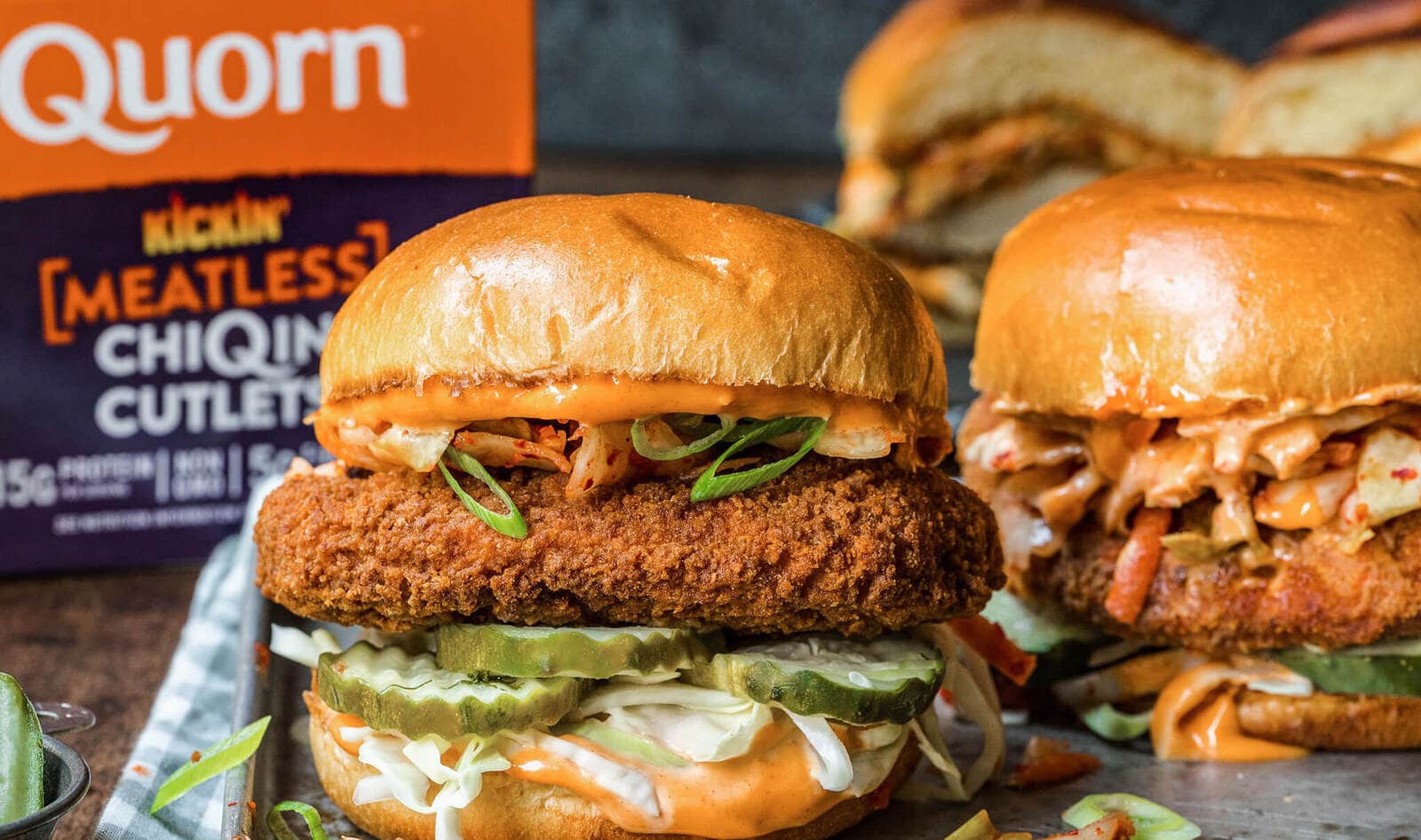United Kingdom-based meatless brand Quorn is leading the creation of a new trade association to help make mushroom meat more accessible. The Fungi Protein Association (FPA) also includes several other founding-member companies across the United States and Europe that are pioneering fungi fermentation, including Nature’s Fynd, Enough, The Better Meat Co., The Protein Brewery, Prime Roots, Mycotechnology, and Mycorena.
The FPA aims to advocate for fungi protein to consumers and in public policy, conduct consumer research, and more.
“The possibilities of fungi fermentation are endless, and this is something that Quorn has known since the 1960s,” Judd Zusel, President, North America of Quorn Foods, tells VegNews. “We’re thrilled to team up with fellow industry leaders in the space through the Fungi Protein Association to raise awareness and appreciation of the wonderful ways this sustainable resource can be harnessed to improve the health of people and of our planet.”
What is fungi protein?
Over the last several years, alternative proteins, including fungi protein, have come to the culinary forefront. While mushrooms have been used for centuries as meat replacements, various methods of fungi fermentation are creating a new crop of high-protein, high-fiber meat alternatives. Many believe fungi protein could provide a more sustainable protein source than animal-based protein, which is a resource-intense process with a high carbon footprint.

Quorn
For decades, Quorn was the only company making alternative meat products using fungi fermentation—also known as mycoprotein. And now, many companies creating meat and dairy substitutes using fungal fermentation are getting products to market after making strides in development and scaling. In fact, according to the Good Food Institute, in 2021 there were 43 companies worldwide using biomass fermentation to create this protein.
Mycoprotein is a protein made from Fusarium venenatum or other strains of naturally occurring fungus. To create it, manufacturers ferment fungi spores along with other nutrients using a fermentation process called microbial fermentation, similar to the process used to create beer. It results in a doughy mixture with a meat-like texture that’s high in protein and fiber.
A study published earlier this year in scientific journal Nature found that replacing just 20 percent of beef with fungi protein could cut global deforestation by a whopping 50 percent. Producing meat in this way is also far more environmentally friendly given the savings in resources such as land and water. This method also substantially slashes greenhouse gas emissions compared to animal agriculture.

“The food system is at the root of a third of global greenhouse gas emissions, with ruminant meat production being the single largest source,” the lead author of the study Florian Humpenöder said in a statement. “The substitution of ruminant meat with microbial protein in the future could considerably reduce the greenhouse gas footprint of the food system.”
Fungi protein is not plant protein
Up until now, fungi proteins have been categorized with plant-based proteins, but they are different. The FPA will aim to help burgeoning fungi startups by letting consumers know their products are different from those made from plants, and it will advocate for policies and regulations that specifically serve this sector.
New market research forecasts that the global mycoprotein market is anticipated to reach nearly $1 billion by 2032. This is being driven by rising demand for better-quality, more sustainable, and ethical protein alternatives and mass adoption of veganism.

Nature’s Fynd
Leaders in the fungi space are already innovating new meat products. Nature’s Fynd, which gets its Fy protein from fermenting a fungus found in a volcanic spring at Yellowstone National Park, has so far raised hundreds of millions of dollars to produce Fy commercially, promoting it as the future of sustainable food.
Nature’s Fynd’s Fy protein can be found in its recently launched vegan products, including Meatless Breakfast Patties and Dairy-Free Cream Cheese, which are available in select grocery stores across the US, including select Whole Foods Market stores.
Another startup is MyForest Foods, which is rolling out its mycelium MyBacon to retail stores and is putting the finishing touches on a 120,000-square-foot mycelium production facility that can make up to three million pounds of MyBacon a year.
“Fully displacing animal agriculture is one of the most important things I can work on and that just happened to align with where we were on developing this mycelium,” MyForest Foods founder Eben Bayer previously told VegNews.
There’s also Meati, which makes whole-cut steaks and chicken from mycelium. It recently closed a $150 million series C funding and is now rolling out to Sprouts Farmers Market locations around the country.
Starting today, Meati’s vegan mushroom-based chicken will hit the menu at the Culver City Food Lab location of sweetgreens—representing the first time the fast-casual chain has offered a vegan protein.









